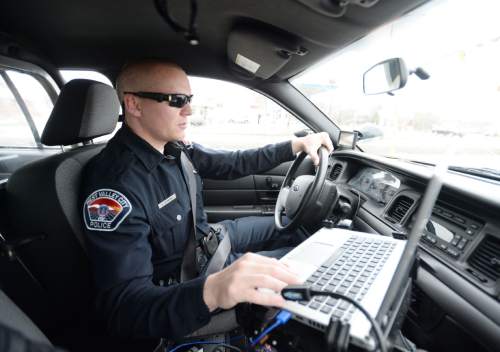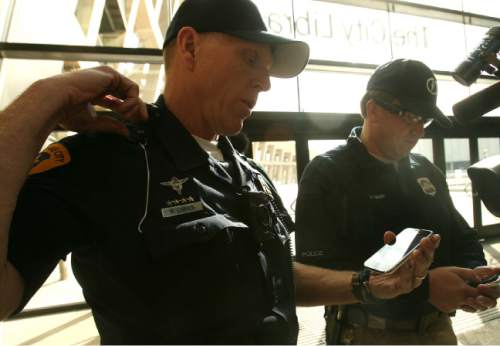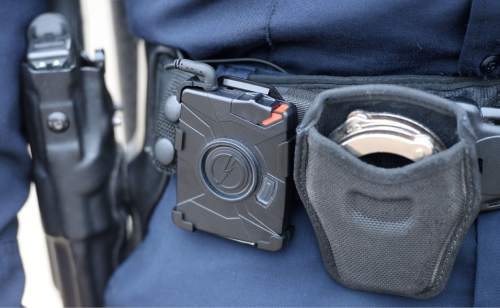This is an archived article that was published on sltrib.com in 2016, and information in the article may be outdated. It is provided only for personal research purposes and may not be reprinted.
If a new Utah bill succeeds, officers statewide would have a minimum set of rules to follow when using their body cameras. The cameras' recordings would also become private.
On Tuesday, Sen. Daniel Thatcher, R-West Valley City, filed SB94, which would require the Peace Officer Standards and Training Division to create "minimum standards" for how and when officers use body cameras. The bill mandates that any Utah agency using the cameras create policies that at least meet those standards.
SB94 would also make the cameras' video and audio recordings private records if those recordings are either especially graphic. Recordings would also be private if the recordings occurred when the officer needed permission — such as serving a warrant — to be there, or when an officer had probable cause to enter a building but insufficient time to secure a warrant (in legal terms, this is called "exigent circumstances").
In the past two years, more law enforcement agencies have been adopting the cameras, including the state's two largest police departments: Salt Lake City and West Valley City. Both in Utah and nationwide, law enforcement have been under increased scrutiny after controversial uses of force.
Some agencies have been releasing the footage, as well.
For instance, Salt Lake City released videos after the shootings of James Barker in 2015 and Dillon Taylor in 2014. The same day that Thatcher filed his bill, the West Valley City police department released footage of officers rescuing a couple from their burning home.
Thatcher has been working on a body-cam bill since at least last August. At that point, during an interim committee to discuss issues surrounding body-cams (but not specific legislation), Rep. Angela Romero, D-Salt Lake City, said incidents of police excessive use of force have spurred public demand for body cameras and uniform policies in their use.
Sen. Luz Escamilla, D-Salt Lake City, said at the meeting that a hands-off approach from the state toward body cameras could lead to public distrust, especially if body camera policies vary widely from city to city.
A committee hearing to cast the first votes on SB94 has not yet been scheduled.
mmcfall@sltrib.com Twitter: @MikeyPanda







